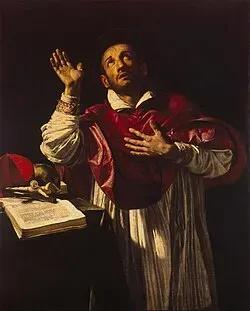The historical relevance of November 4th in collective memory
November 4th is a date that, throughout history, has been marked by significant events that have influenced the political and social life of various countries. In the Argentine context, this date becomes a point of reflection on historical memory and the construction of national identity. What implications does this commemoration have today, and how does it relate to the current state of our society?
📅 Current panorama
Today, various relevant historical events are commemorated. For example, in 1913, we remember the death of Luis A. Huergo, a notable Argentine engineer and one of the pioneers in engineering education in the country. Similarly, in 1922, the discovery of Tutankhamun's tomb is celebrated, a finding that revolutionized Egyptology and, although geographically distant, has impacted global culture.
Such anniversaries invite us to reflect on the past and its influence on our present. At a time when the dilemma of historical memory is central in many societies, November 4th can serve as a reminder of the importance of knowing and understanding our history to build a stronger future.
🌍 International comparison
The commemoration of historical dates is not exclusive to Argentina. In the United States, July 4th is celebrated as Independence Day, marking a fundamental milestone in the formation of the country. This holiday not only celebrates independence but also serves as a moment of reflection on democratic values and social struggles.
In France, July 14th, known as Bastille Day, remembers the storming of the Bastille prison in 1789, an event that symbolizes the start of the French Revolution. In both cases, these dates have become moments of national unity and reaffirmation of democratic principles.
The way other countries approach their commemorations can offer valuable lessons. For instance, Germany's approach to the commemoration of the Berlin Wall has been fundamental for reconciliation and social understanding after a period of intense polarization. How the past is remembered can influence social cohesion and the construction of a more inclusive future.
⚖️ Social and political implications
Historical memory has profound implications for today’s society. In Argentina, November 4th can serve as a reminder of the importance of civic education and citizen participation. As we face contemporary challenges such as economic inequality and political polarization, it is essential for citizens to be informed and engaged in democratic processes.
Moreover, historical memory can also be a space for the recognition of past injustices. In a context where issues such as human rights are discussed, the commemoration of significant dates can serve to vindicate those who have been forgotten or marginalized in the official narrative.
It is essential that Argentine society not only remembers but also learns from its history. The lessons of the past can guide the construction of a fairer and more equitable future, where plurality and respect for diversity are fundamental pillars.
🕊️ The need for dialogue and reconciliation
The commemoration of November 4th should also be a call to action. As we remember historical events, we must foster an inclusive dialogue that allows different sectors of society to express their opinions and emotions. The construction of a collective memory should not be a unilateral process, but a joint effort that includes diverse voices.
The challenge is how to turn such commemorations into concrete actions that contribute to resolving current conflicts. In this regard, education plays a crucial role. Investing in educational initiatives that teach history, human rights, and civics can be a first step towards a more informed and less polarized society.
In conclusion, November 4th is more than just a date on the calendar. It is an opportunity to reflect on the past, learn from it, and build a more supportive and respectful future. Historical memory must be a driving force for change, a reminder that without strong institutions and a genuine commitment to democracy, we cannot move towards sustainable and just development. History teaches us that the future is not a destination but a path built day by day, with each decision we make.

Comments